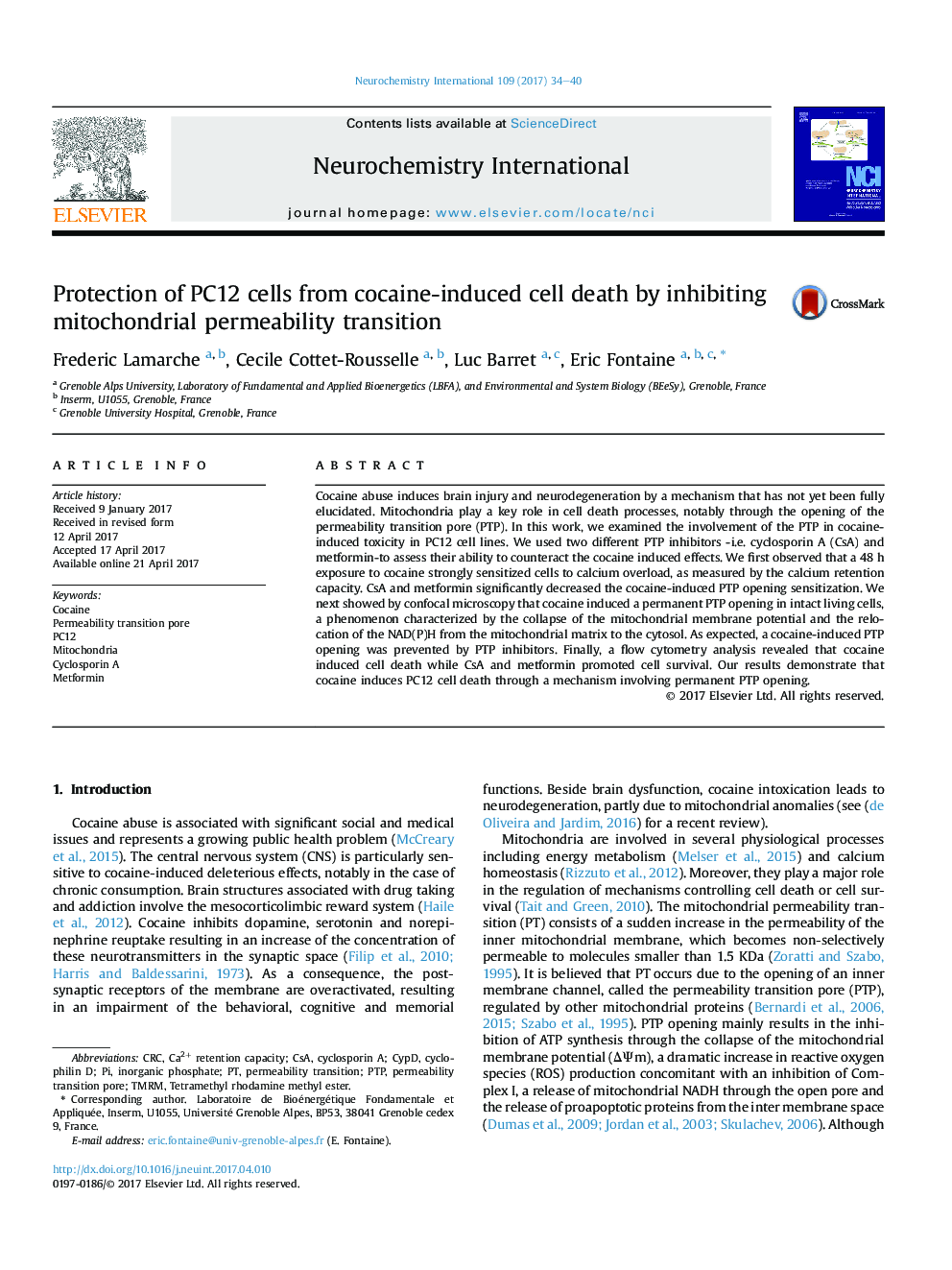| Article ID | Journal | Published Year | Pages | File Type |
|---|---|---|---|---|
| 5534667 | Neurochemistry International | 2017 | 7 Pages |
â¢Cocaine induces cell death by a mechanism that involves mitochondria.â¢Exposure of PC12 cells to cocaine led to mitochondrial permeability transition.â¢Inhibition of permeability transition decreased cocaine toxicity in PC12 cells.
Cocaine abuse induces brain injury and neurodegeneration by a mechanism that has not yet been fully elucidated. Mitochondria play a key role in cell death processes, notably through the opening of the permeability transition pore (PTP). In this work, we examined the involvement of the PTP in cocaine-induced toxicity in PC12Â cell lines. We used two different PTP inhibitors -i.e. cyclosporin A (CsA) and metformin-to assess their ability to counteract the cocaine induced effects. We first observed that a 48Â h exposure to cocaine strongly sensitized cells to calcium overload, as measured by the calcium retention capacity. CsA and metformin significantly decreased the cocaine-induced PTP opening sensitization. We next showed by confocal microscopy that cocaine induced a permanent PTP opening in intact living cells, a phenomenon characterized by the collapse of the mitochondrial membrane potential and the relocation of the NAD(P)H from the mitochondrial matrix to the cytosol. As expected, a cocaine-induced PTP opening was prevented by PTP inhibitors. Finally, a flow cytometry analysis revealed that cocaine induced cell death while CsA and metformin promoted cell survival. Our results demonstrate that cocaine induces PC12Â cell death through a mechanism involving permanent PTP opening.
